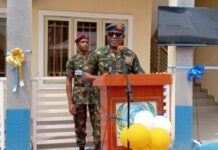
By Philip Yatai
Some citizens under the umbrella of “Accountability Groups” have taken steps to set an agenda for the incoming government in Kaduna State with a view to strengthening inclusiveness, responsible, and responsive governance.
Some of the groups are Kaduna Basic Education Accountability Mechanism; Kaduna Maternal Accountability Mechanism; and Kaduna Local Government Accountability Mechanism.
Others are the Kaduna Tax Justice Network; Kaduna Social Protection Accountability Coalition (KADSPAC); and the Network of Civil Society in Environment.
The News Agency of Nigeria (NAN) reports that the session was organised by Partnership for Issue-Based Campaigns in Nigeria (PICaN) in collaboration with Partnership to Engage, Reform and Learn (PERL), a governance programme.
The lead partner, PICaN, Mr Yusuf Goje explained during the technical session in Kaduna that the step was to document the candidates’ commitments to addressing citizens’ concerns if elected.
NAN recalls that in the build up to the election, PICaN, Legal Awareness for Nigerian Women, KADSPAC, Nigerian Union of Journalist, Procyon News and other citizens groups have engaged the candidates.
During the engagements, citizens presented demand chanters to the candidates for consideration if elected to office as part of the governance agenda.
The citizens’ groups with support from PERL had in February, tracked, and analysed the influence of citizens’ demand on the governorship candidates’ published manifestos.
Goje explained that the objective of the technical session was to harmonise the citizens demand charter on published manifestos of the candidates for the gubernatorial election in Kaduna State.
According to him, the main goal is to agree on priority areas to set the agenda for the incoming government.
He equally said that the meeting was organised for the citizens’ groups to brainstorm on advocacy strategies to inform and influence the work of the transition committee in the state.
Goje said that the measure became necessary in view of the current challenges affecting the state, adding that it was strategic to engage the incoming government on ways to address them.
He identified some of the challenges to include insecurity and social disintegration, multidimensional poverty, and lack of coping mechanisms for economic shock among the poor and vulnerable population.
He added that the state equally had a high dependence rate with 44.3 per cent unemployment and 22.6 per cent under-employment rates.
On education, Goje said that the state was challenged by a high number of out of school children, high rate of school dropout and insufficient school infrastructure.
“There is also the problem of poor health indices, while 64 per cent of households lack access to clean drinking water, in addition to poor road network, particularly in rural areas.
“There is equally the poor statutory remittance of 10 per cent of total Internally Generated Revenue to the 23 Local government areas, poor investment in agriculture, high youth population and high public debt.
“As citizens groups working in the governance space, we will develop advocacy strategies to engage the transition committee so the above concerns will inform the agenda of the incoming administration,” he said.
Earlier, Mr Istifanus Akau, State Partnership Facilitator, PERL, described the move as “very strategic” in entrenching citizens’ influence and participation in the governance process.
Similarly, PERL State Lead Facilitator, Mr Abel Adejor, said that the governance programme, being funded by UK Foreign, Commonwealth and Development Office, would continue to support citizens to actively engage the governance process.
Adejor identified some of the areas of support to include mutual accountability framework, open governance, local governance, budget engagement, legislative and audit processes. (NAN)



